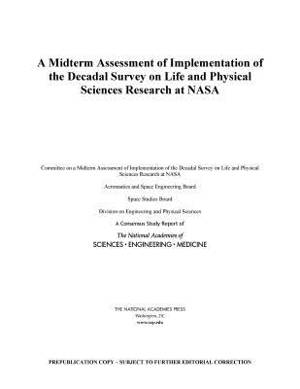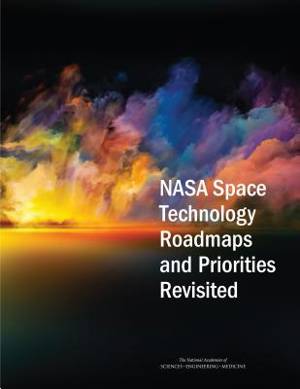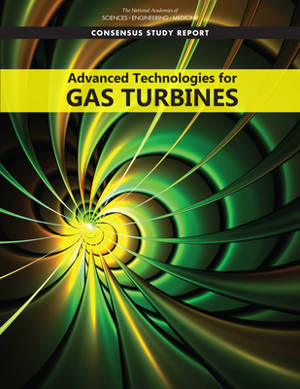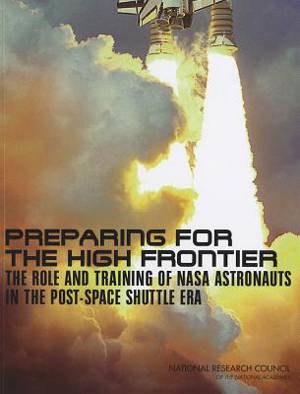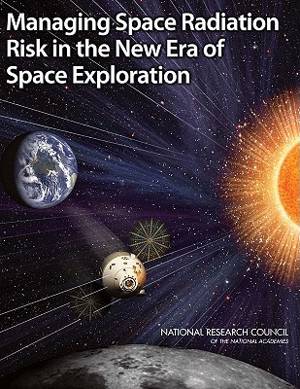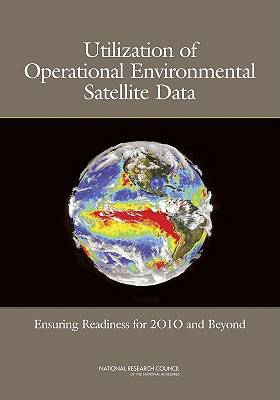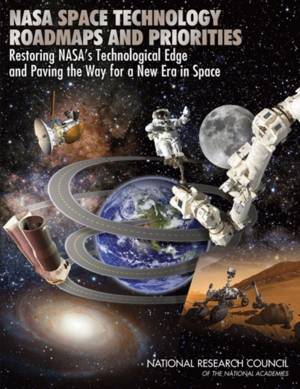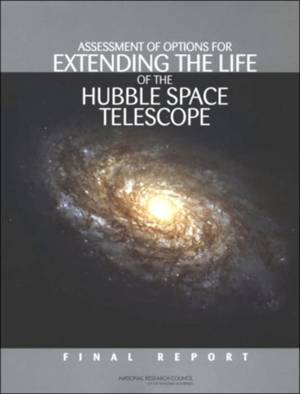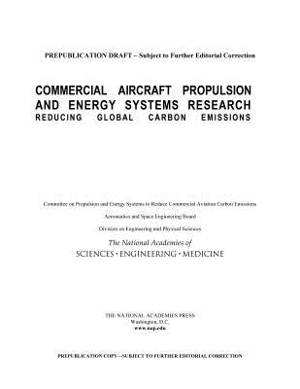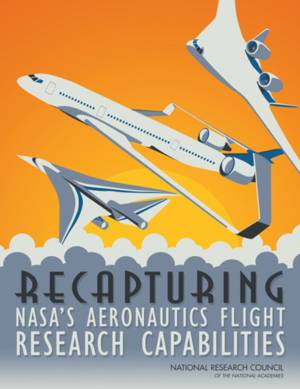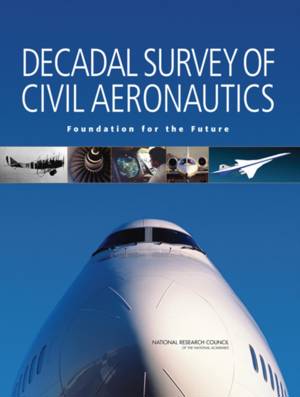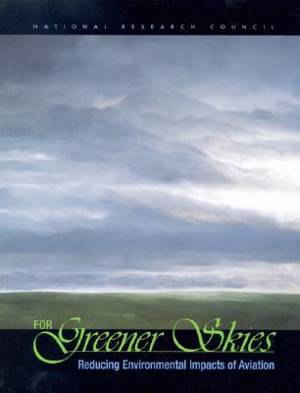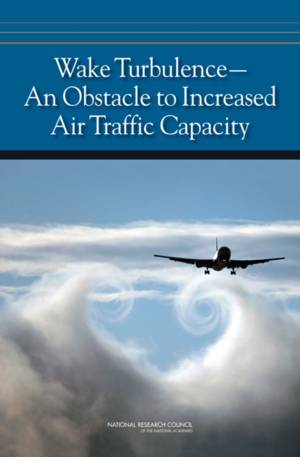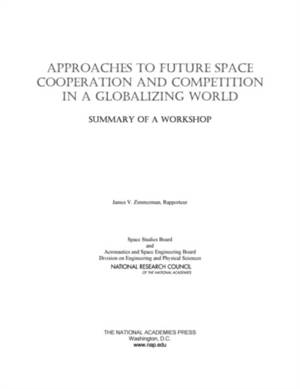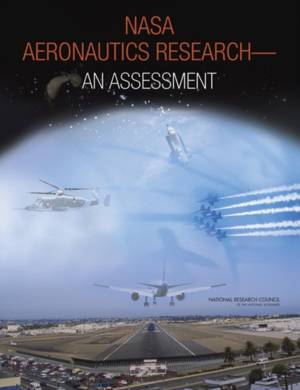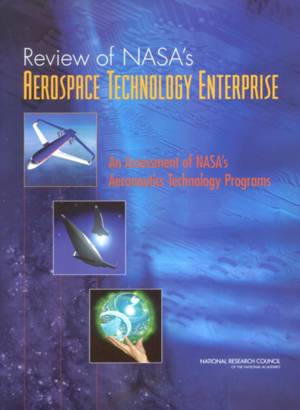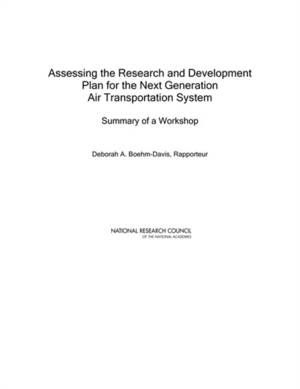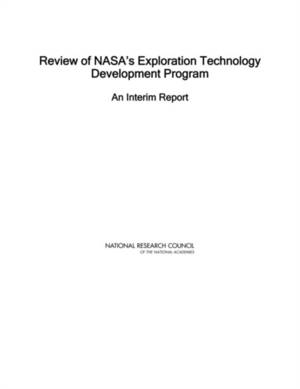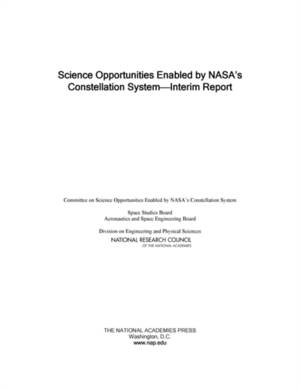
Bedankt voor het vertrouwen het afgelopen jaar! Om jou te bedanken bieden we GRATIS verzending (in België) aan op alles gedurende de hele maand januari.
- Afhalen na 1 uur in een winkel met voorraad
- In januari gratis thuislevering in België
- Ruim aanbod met 7 miljoen producten
Bedankt voor het vertrouwen het afgelopen jaar! Om jou te bedanken bieden we GRATIS verzending (in België) aan op alles gedurende de hele maand januari.
- Afhalen na 1 uur in een winkel met voorraad
- In januari gratis thuislevering in België
- Ruim aanbod met 7 miljoen producten
Zoeken
Resultaten voor "Aeronautics and Space Engineering Board"
-
NASA at a Crossroads
National Academies of Sciences Engineering and Medicine, Division on Engineering and Physical Sciences, Space Studies Board, Aeronautics and Space Engineering Board, Committee on Nasa Mission Critical Workforce Infrastructure and
- Paperback | Engels
- Since its formation more than 60 years ago, the National Aeronautics and Space Administration (NASA) has served as a global leader in science, aeronau... Lees meer
€ 76,45Levering 2 à 3 weken€ 76,45Levering 2 à 3 weken -
A Midterm Assessment of Implementation of the Decadal Survey on Life and Physical Sciences Research at NASA
National Academies of Sciences Engineering and Medicine, Division on Engineering and Physical Sciences, Space Studies Board, Aeronautics and Space Engineering Board, Committee on a Midterm Assessment of Implementation of the Decad
- Paperback | Engels
- The 2011 National Research Council decadal survey on biological and physical sciences in space, Recapturing a Future for Space Exploration: Life and P... Lees meer
€ 88,95Levering 1 à 2 weken€ 88,95Levering 1 à 2 weken -
NASA Space Technology Roadmaps and Priorities Revisited
National Academies of Sciences Engineering and Medicine, Division on Engineering and Physical Sciences, Aeronautics and Space Engineering Board, Committee on Nasa Technology Roadmaps
- Paperback | Engels
- Historically, the United States has been a world leader in aerospace endeavors in both the government and commercial sectors. A key factor in aerospac... Lees meer
€ 81,45Levering 1 à 2 weken€ 81,45Levering 1 à 2 weken -
Advanced Technologies for Gas Turbines
National Academies of Sciences Engineering and Medicine, Division on Engineering and Physical Sciences, Aeronautics and Space Engineering Board, Committee on Advanced Technologies for Gas Turbines
- Paperback | Engels
- Leadership in gas turbine technologies is of continuing importance as the value of gas turbine production is projected to grow substantially by 2030 a... Lees meer
€ 111,45Levering 1 à 2 weken€ 111,45Levering 1 à 2 weken -
Solar and Space Physics
National Research Council, Division on Engineering and Physical Sciences, Aeronautics and Space Engineering Board, Space Studies Board, Committee on a Decadal Strategy for Solar and Space Physics (Hel
- Boek | Engels
- From the interior of the Sun, to the upper atmosphere and near-space environment of Earth, and outward to a region far beyond Pluto where the Sun's in... Lees meer
€ 125,95Levering 1 à 2 weken€ 125,95Levering 1 à 2 weken -
Priorities in Space Science Enabled by Nuclear Power and Propulsion
National Research Council, Division on Engineering and Physical Sciences, Aeronautics and Space Engineering Board, Space Studies Board, Committee on Priorities for Space Science Enabled by Nuclear Pow
- Paperback | Engels
- In 2003, NASA began an R&D effort to develop nuclear power and propulsion systems for solar system exploration. This activity, renamed Project Prometh... Lees meer
€ 97,95Levering 1 à 2 weken€ 97,95Levering 1 à 2 weken -
Preparing for the High Frontier
National Research Council, Division on Engineering and Physical Sciences, Aeronautics and Space Engineering Board, Committee on Human Spaceflight Crew Operations
- Paperback | Engels
- As the National Aeronautics and Space Administration (NASA) retires the Space Shuttle and shifts involvement in International Space Station (ISS) oper... Lees meer
€ 54,95Levering 1 à 2 weken€ 54,95Levering 1 à 2 weken -
Launching Science
National Research Council, Division on Engineering and Physical Sciences, Aeronautics and Space Engineering Board, Space Studies Board, Committee on Science Opportunities Enabled by NASA's Constellati
- Paperback | Engels
- In January 2004 NASA was given a new policy direction known as the Vision for Space Exploration. That plan, now renamed the United States Space Explor... Lees meer
€ 75,95Levering 1 à 2 weken€ 75,95Levering 1 à 2 weken -
Managing Space Radiation Risk in the New Era of Space Exploration
National Research Council, Division on Engineering and Physical Sciences, Aeronautics and Space Engineering Board, Committee on the Evaluation of Radiation Shielding for Space Exp
- Paperback | Engels
- As part of the Vision for Space Exploration (VSE), NASA is planning for humans to revisit the Moon and someday go to Mars. An important consideration ... Lees meer
€ 66,95Levering 1 à 2 weken€ 66,95Levering 1 à 2 weken -
Utilization of Operational Environmental Satellite Data
National Research Council, Division on Earth and Life Studies, Board on Atmospheric Sciences and Climate, Division on Engineering and Physical Sciences, Aeronautics and Space Engineering Board, Space Studies Board, Committee on Environmental Satellite Data Utilization
- Paperback | Engels
- The system of satellites in place to provide environmental data-data to monitor events such as forest fires and floods; to make weather predictions; a... Lees meer
€ 88,95Levering 2 à 3 weken€ 88,95Levering 2 à 3 weken -
NASA Space Technology Roadmaps and Priorities
National Research Council, Division on Engineering and Physical Sciences, Aeronautics and Space Engineering Board, Steering Committee for Nasa Technology Roadmaps
- NASA's Office of the Chief Technologist (OCT) has begun to rebuild the advanced space technology program in the agency with plans laid out in 14 draft... Lees meer
€ 56,45Levering 1 à 2 weken€ 56,45Levering 1 à 2 weken -
Assessment of Options for Extending the Life of the Hubble Space Telescope
National Research Council, Division on Engineering and Physical Sciences, Aeronautics and Space Engineering Board, Space Studies Board, Committee on the Assessment of Options for Extending the Life of
- Paperback | Engels
- The Hubble Space Telescope (HST) has operated continuously since 1990. During that time, four space shuttle-based service missions were launched, thre... Lees meer
€ 66,95Levering 1 à 2 weken€ 66,95Levering 1 à 2 weken -
Commercial Aircraft Propulsion and Energy Systems Research
National Academies of Sciences Engineering and Medicine, Division on Engineering and Physical Sciences, Aeronautics and Space Engineering Board, Committee on Propulsion and Energy Systems to Reduce Commercial
- Paperback | Engels
- The primary human activities that release carbon dioxide (CO2) into the atmosphere are the combustion of fossil fuels (coal, natural gas, and oil) to ... Lees meer
€ 87,45Verwachte beschikbaarheidsdatum onbekend€ 87,45Verwachte beschikbaarheidsdatum onbekend -
Recapturing Nasa's Aeronautics Flight Research Capabilities
National Research Council, Division on Engineering and Physical Sciences, Aeronautics and Space Engineering Board, Committee to Assess Nasa's Aeronautics Flight Research Capabilit
- Paperback | Engels
- In the five decades since NASA was created, the agency has sustained its legacy from the National Advisory Committee on Aeronautics (NACA) in playing ... Lees meer
€ 57,95Verwachte beschikbaarheidsdatum onbekend€ 57,95Verwachte beschikbaarheidsdatum onbekend -
Decadal Survey of Civil Aeronautics
National Research Council, Division on Engineering and Physical Sciences, Aeronautics and Space Engineering Board, Steering Committee for the Decadal Survey of Civil Aeronautics
- Paperback | Engels
- The U.S. air transportation system is very important for our economic well-being and national security. The nation is also the global leader in civil ... Lees meer
€ 94,95Verwachte leverdatum onbekend€ 94,95Verwachte leverdatum onbekend -
For Greener Skies
National Research Council, Division on Engineering and Physical Sciences, Aeronautics and Space Engineering Board, Committee on Aeronautics Research and Technology for Environment
- Paperback | Engels | Compass
- Each new generation of commercial aircraft produces less noise and fewer emissions per passenger-kilometer (or ton-kilometer of cargo) than the previo... Lees meer
€ 69,95Verwachte beschikbaarheidsdatum onbekend€ 69,95Verwachte beschikbaarheidsdatum onbekend -
Wake Turbulence--An Obstacle to Increased Air Traffic Capacity
National Research Council, Division on Engineering and Physical Sciences, Aeronautics and Space Engineering Board, Committee to Conduct an Independent Assessment of the Nation's W
- Paperback | Engels
- Without major changes, the current air transportation system will be unable to accommodate the expected increase in demand by 2025. One proposal to ad... Lees meer
€ 56,45Verwachte leverdatum onbekend€ 56,45Verwachte leverdatum onbekend -
Approaches to Future Space Cooperation and Competition in a Globalizing World
National Research Council, Division on Engineering and Physical Sciences, Aeronautics and Space Engineering Board, Space Studies Board
- Paperback | Engels
- Numerous countries and regions now have very active space programs, and the number is increasing. These maturing capabilities around the world create ... Lees meer
€ 42,95Verwachte beschikbaarheidsdatum onbekend€ 42,95Verwachte beschikbaarheidsdatum onbekend -
NASA Aeronautics Research
National Research Council, Division on Engineering and Physical Sciences, Aeronautics and Space Engineering Board, Committee for the Assessment of NASA's Aeronautics Research Prog
- Paperback | Engels
- In 2006, the NRC published a Decadal Survey of Civil Aeronautics: Foundation for the Future, which set out six strategic objectives for the next decad... Lees meer
€ 63,95Verwachte beschikbaarheidsdatum onbekend€ 63,95Verwachte beschikbaarheidsdatum onbekend -
Review of Nasa's Aerospace Technology Enterprise
National Research Council, Division on Engineering and Physical Sciences, Aeronautics and Space Engineering Board, Committee for the Review of NASA's Revolutionize Aviation Progra
- Paperback | Engels
- The National Research Council (NRC) of the National Academies was asked by NASA and the Office of Management and Budget to perform an assessment of NA... Lees meer
€ 71,45Verwachte leverdatum onbekend€ 71,45Verwachte leverdatum onbekend -
Assessing the Research and Development Plan for the Next Generation Air Transportation System
National Research Council, Division on Engineering and Physical Sciences, Aeronautics and Space Engineering Board
- Paperback | Engels
- The U.S. aviation industry, airline passengers, aircraft pilots, airports, and airline companies are all facing challenges. The air transportation sys... Lees meer
€ 31,45Verwachte beschikbaarheidsdatum onbekend€ 31,45Verwachte beschikbaarheidsdatum onbekend -
Review of Nasa's Exploration Technology Development Program
National Research Council, Division on Engineering and Physical Sciences, Aeronautics and Space Engineering Board, Committee to Review NASA's Exploration Technology Development Pr
- Paperback | Engels
- To meet the objectives of the Vision for Space Exploration (VSE), NASA must develop a wide array of enabling technologies. For this purpose, NASA esta... Lees meer
€ 42,95Verwachte beschikbaarheidsdatum onbekend€ 42,95Verwachte beschikbaarheidsdatum onbekend -
Pathways to Exploration
National Research Council, Division of Behavioral and Social Sciences and Education, Committee on National Statistics, Division on Engineering and Physical Sciences, Space Studies Board, Aeronautics and Space Engineering Board, Committee on Human Spaceflight
- Paperback | Engels
- The United States has publicly funded its human spaceflight program on a continuous basis for more than a half-century, through three wars and a half-... Lees meer
€ 99,45Verwachte beschikbaarheidsdatum onbekend€ 99,45Verwachte beschikbaarheidsdatum onbekend -
Science Opportunities Enabled by Nasa's Constellation System
National Research Council, Division on Engineering and Physical Sciences, Aeronautics and Space Engineering Board, Space Studies Board, Committee on Science Opportunities Enabled by NASA's Constellati
- Paperback | Engels
- To begin implementation of the Vision for Space Exploration (recently renamed "United States Space Exploration Policy"), NASA has begun development of... Lees meer
€ 42,95Verwachte beschikbaarheidsdatum onbekend€ 42,95Verwachte beschikbaarheidsdatum onbekend








